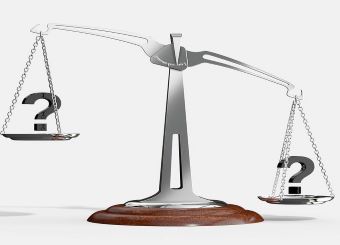Finding of Viewpoint Discrimination Leads to Loss of Qualified Immunity for University Officials

Last month, in the case of Business Leaders in Christ v. University of Iowa, a three-judge panel of the Eighth Circuit Court of Appeals ruled that qualified immunity – the legal doctrine that protects state and local officials from individual liability unless they violate clearly established constitutional rights – did not apply to the University of Iowa (“UI”) administrators who denied registered student organization status to Business Leaders in Christ (“BLC”), a Christian student group that rejects homosexual relationships. Consequently, those officials, the court found, can be held liable for monetary damages for violating BLC’s clearly established constitutional rights to freedom of speech and association.
The case stems from BLC’s 2017 decision to bar a UI student from serving in its leadership after the latter disclosed that he was gay and did not agree with BLC’s teachings on sexuality. The referenced student filed an internal complaint of discrimination, alleging that BLC was in violation of UI’s Human Rights Policy.[1] UI officials found that BLC’s leadership requirements effectively disqualified certain students based solely on sexual orientation or gender identity, and proceeded to revoke its status as a UI student organization.
In the federal lawsuit subsequently brought by BLC, the district court noted that several other UI student organizations had their constitutions approved when they explicitly restricted control or access to membership or leadership based on race, national origin, sex, sexual orientation, gender identity, or status as a veteran. The district court thus concluded that UI had unevenly applied its policies and engaged in viewpoint discrimination by allowing other groups to limit membership based on religious views, race, sex and other characteristics, while barring BLC from doing so.
On appeal, the Eighth Circuit reversed the part of the lower court’s decision that found that UI administrators had qualified immunity and were therefore not liable for monetary damages in this case. Citing U.S. Supreme Court and other federal court precedent that student groups cannot be discriminated against on the basis of their viewpoints, the Eighth Circuit found that the right not to be subjected to viewpoint discrimination in a limited public forum was clearly established, thereby negating any claim for qualified immunity. In the end, the case stands for the proposition that institutions of higher education, and their officials, who fail to ensure the consistent and equal application of policies across all student organizations, do so at their own peril.
[1] The Policy states, in part, as follows: “The University is guided by the precepts that in no aspect of its programs shall there be differences in the treatment of persons because of race, creed, color, religion, national origin, age, sex, pregnancy, disability, genetic information, status as a U.S. veteran, service in the U.S. military, sexual orientation, gender identity, associational preferences, or any other classification that deprives the person of consideration as an individual, and that equal opportunity and access to facilities shall be available to all. These principles are expected to be observed…in policies governing programs of extracurricular life and activities.”